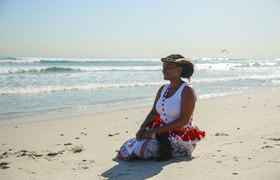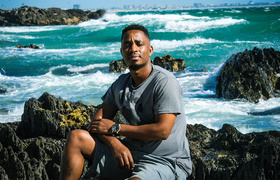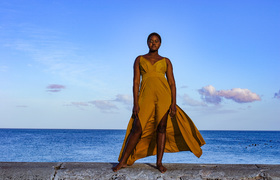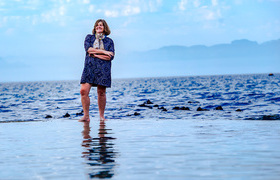SOLAS conference at UCT a first for Southern Hemisphere
06 October 2022 | Story Helen Swingler. Photo Getty Images. Read time 5 min.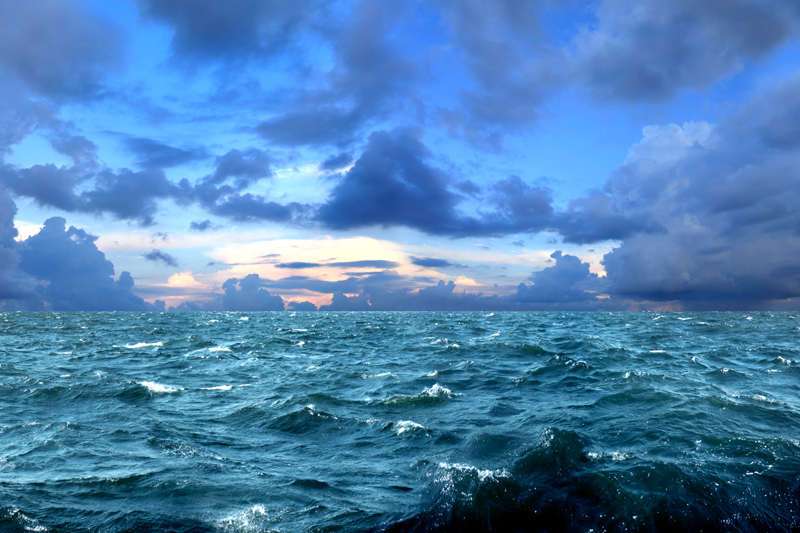
The University of Cape Town’s (UCT) Graduate School of Business hosted the Southern Hemisphere’s first Surface Ocean – Lower Atmosphere Study (SOLAS) Open Science Conference from 25 to 29 September 2022, a hybrid gathering of almost 200 ocean–atmosphere scientists across the globe.
It was the eighth instalment of the conference.
SOLAS is a global and multidisciplinary research project established to provide international science coordination and build capacity. Initiated in 2000 with the first Open Science Conference, the project launched in 2004. SOLAS’s collective research aims to develop our understanding of key biogeochemical-physical interactions and feedbacks between the ocean and the atmosphere.
This work is important to understanding and quantifying the role of ocean–atmosphere interactions in climate regulation and global change. The SOLAS open conferences play a vital role in that.
Five core themes underpin the SOLAS science plan: greenhouse gases and the oceans; air–sea interface and the fluxes of mass and energy; atmospheric deposition and ocean biogeochemistry; interconnections between marine ecosystems, aerosols and clouds; and ocean biogeochemical control on atmospheric chemistry.
Attracting 95 on-site participants and another 100 online, the meeting was a great success, said Dr Katye Altieri of UCT’s Department of Oceanography and the chair of the SOLAS 2022 local organising committee.
The jam-packed programme featured 33 plenary talks, 43 on-site poster presentations, 81 online poster presentations and seven discussion sessions.
“An international conference in the Southern Hemisphere made it accessible for us southerners to attend!”
Surrounded by the Atlantic and Indian oceans and the gateway to the Southern Ocean and Antarctica, the Mother City presented the ideal coastal conference location, said the local organising committee. The Benguela upwelling system along the country’s west coast is one of the world’s most productive ecosystems and supports a diversity of socio-economically important fisheries. It is also the focus of active cross-cutting SOLAS research.
Although the conference was a first for the Southern Hemisphere, many SOLAS scientists had already spent time in Cape Town, either before and after sampling expeditions or as part of their explorations of the 4 000 km stretch of ocean between Cape Town and Antarctica in the context of SOLAS science themes.
Early-career scientists invited speakers
A highlight of the conference was the attendance of 30 early-career scientists at a dedicated early-career workshop and seven discussion sessions related to the UN Ocean Decade and multiple international platforms, Dr Altieri said.
UCT’s Dr Moagabo Ragoasha (Department of Oceanography), a member of the early-career organising committee, commended SOLAS for the initiative.
“I have attended conferences in the past, but I have never seen early-career scientists as invited speakers. So, I and my fellow early-career scientists were honoured to be invited. Better still was having a day dedicated to and organised by us, where we could share our challenges and how we can overcome these.
“We also had informative workshops on grant writing and inclusivity. It was a great way to network with my peers and experts worldwide. And an international conference in the Southern Hemisphere made it accessible for us southerners to attend!”
Understanding upwelling systems
Dr Ragoasha’s keynote address on the last day was titled “Eastern Boundary Upwelling Systems in a Warming World: Inconsistence trends”.
Eastern Boundary Upwelling Systems (EBUS) occur along the western shores of landmasses in the Pacific and Atlantic Oceans and include the California, Humboldt, Canary, and Benguela Currents.
EBUS are among the world’s most productive ocean ecosystems, producing about 20% of global fish catch although they cover less than 1% of these rich waters, Ragoasha explained.
“There has been a growing concern about the potential effects of climate change on the resource productivity of EBUS,” she said. “Several studies have focused on the changes in the upwelling-favourable winds trends under different climate scenarios and produced inconsistent findings in the EBUS.
“However, observations and climate models show inconsistencies in climate change impact within and among the systems. Yes, we have made solid progress with our knowledge, but more work must be done to improve our understanding of these systems. This knowledge will help to predict the impact of climate change realistically.”
 This work is licensed under a Creative Commons Attribution-NoDerivatives 4.0 International License.
This work is licensed under a Creative Commons Attribution-NoDerivatives 4.0 International License.
Please view the republishing articles page for more information.







